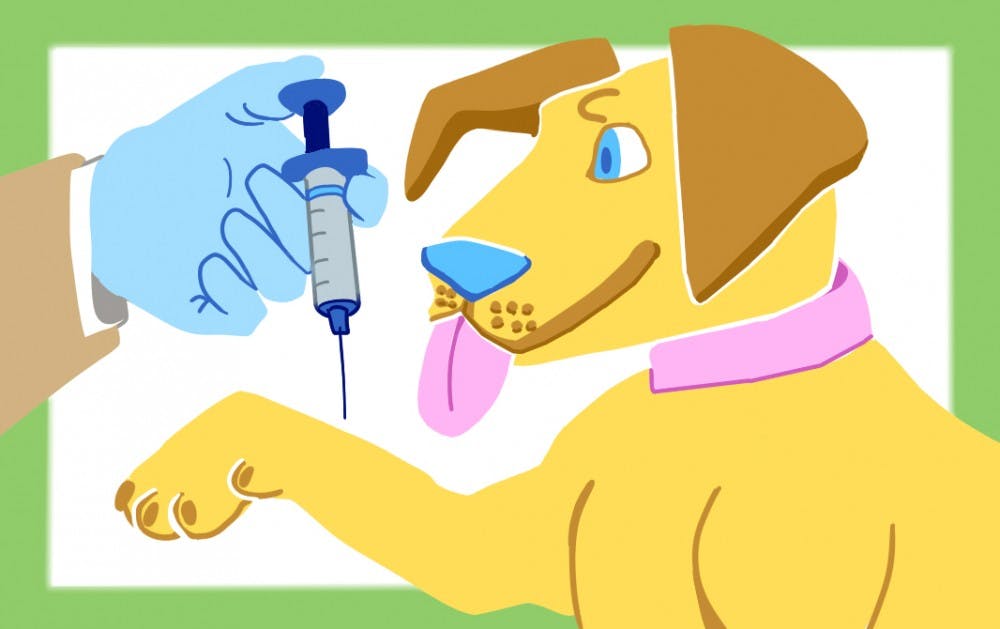Dog lovers rejoice — an ASU led study is one step closer to creating a preventative vaccine for cancer in dogs after beginning its trial phase this summer.
The study began in 2018 after ASU received an over $6.4 million grant from the Open Philanthropy Project to fund the research.
Stephen Johnston, director of the ASU Biodesign Institute's Center for Innovations in Medicine, is the lead researcher on the vaccine and has been working on it for about 12 years.
“I’m an inventor, so I decided to see if I could invent something in the area of cancer that might be a big deal, and so I came up with this idea,” Johnston said.
Colorado State University, University of California Davis and University of Wisconsin-Madison are also involved in the trial. ASU does not have a veterinary school, so the other schools are working with the dogs at their sites.
Dogs between the ages of six and ten were recruited to be a part of the trial and were screened for any cancer. If the results showed no cancer, they were eligible for the trial as this specific vaccine is a preventative measure.
The dogs were then split into two separate groups with one group receiving the vaccine and the others as a placebo group.
The 800 participating dogs will be monitored for five years to see if any develop cancer.
David Vail, a professor of oncology in the University of Wisconsin-Madison School of Veterinary Medicine, is one of the partners on the trial.
“The goal is, prior to developing cancer, to stimulate the immune system to develop memory against (it)," Vail said. "You can think of it as wanted posters that are put up to instruct the immune system to what to look for in an abnormal cancer cell."
Johnston said there will be another, smaller trial toward the end of 2019 to see whether a similar vaccine will work to cure dogs who have already been diagnosed with cancer.
Additionally, Johnston said that within a year of knowing whether or not the vaccine is successful, they will work to produce a version for humans.
“We've already designed it, so that vaccine would also have to go through a safety trial in humans and an efficacy trial, but we will start the trial right away in humans," Johnston said. "How long it will take depends on the trial's design, and we’re still debating on how to do that."
Johnston said he’s been very pleased with the relationship he’s had with the other schools involved.
“I'm really impressed that these vet oncologists have been very supportive, and I didn't have to convince them to get involved with this trial,” he said.
Penny Gwynne, a research laboratory manager in the Center for Innovations in Medicine, has been working with Johnston since 2007.
Gwynne said this process has been “exciting” and that it “would be a dream come true” if the trial was successful and could go on the human trials.
“One of my dogs had cancer, so not only professionally, but personally it means a lot,” Gwynne said.
Johnston said cancer treatments often cost a good amount of money and that he is trying to change that when to comes to the vaccine he’s creating.
“Most of the people in the world that get cancer can't afford it, can't afford something that costs $100,000," he said. "The vaccine that we're trying to push forward would cost $100 or close to that, so it will be available to everybody in the world, and that's what's unique about our effort."
Reach the reporter at bstoshne@asu.edu and follow @itsbrennaaaa on Twitter.
Like The State Press on Facebook and follow @statepress on Twitter.




